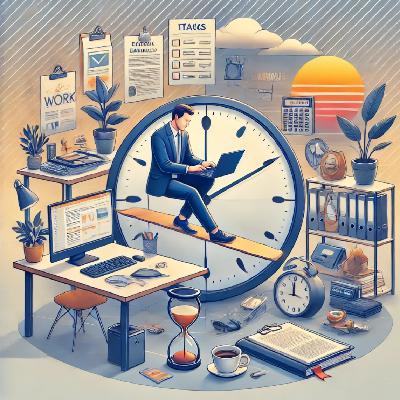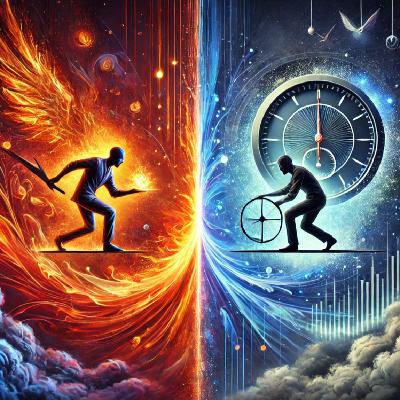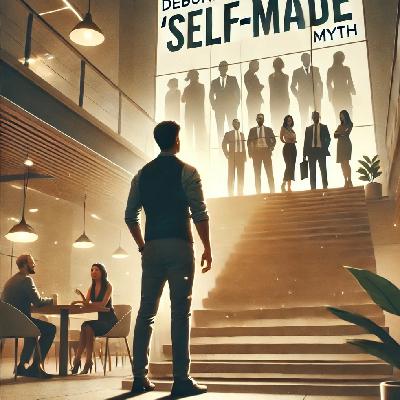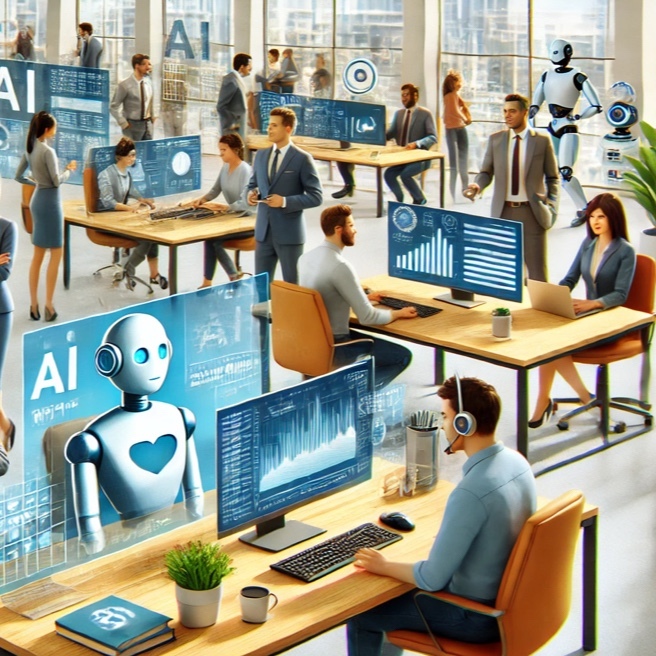Discover Beyond the Present Podcast
Beyond the Present Podcast

Beyond the Present Podcast
Author: BTP Media
Subscribed: 20Played: 1,134Subscribe
Share
© Copyright 2018 All rights reserved.
Description
The team behind the BTP Podcast aims to equip the listeners with the type of information that allows one to be prepared for making decisions that allows one’s future to be better than one’s present! The main themes of BTP are success, leadership, education, futurism, technology, and foreign language education. The podcast includes various editions such as the standard episodic edition, Let’s Talk edition, the Solo Round, the Polyglot Edition, and the Interview edition.
202 Episodes
Reverse
Are you living reactively, constantly responding to what life throws at you? In this episode, we discuss why shifting from a reactive mindset to a predictive one is crucial for achieving mastery in any area of life.
We explore how developing foresight allows you to anticipate trends, make smarter decisions, and stay ahead of the curve. By understanding the importance of prediction, you can stop being at the mercy of circumstances and start shaping your future with purpose and intention.
Tune in to learn why mastering this shift in mindset is essential and discover actionable strategies to move from reaction to prediction, unlocking your potential to become a true master in your field.
Have you ever made a decision in the heat of the moment and regretted it later? In this insightful episode, we delve into the importance of managing mood and anger, focusing on the critical skill of putting time between stimulus and response. Negative emotions, such as frustration or anger, often push us toward impulsive reactions and poor decisions.
We explore why learning to recognize these emotions and practicing self-discipline to step back is essential for better decision-making and long-term success. With practical tips and techniques, this episode equips you with the tools to master your emotions, create emotional distance, and make choices that align with your goals and values.
If you’re ready to stop letting emotions control your actions and start making thoughtful, deliberate decisions, this episode is for you. Tune in to learn the art of mood management and take control of your emotional responses!
Are you stuck in the endless cycle of overthinking and overplanning? In this episode, we tackle the problem of paralysis by analysis and explain why taking action is the most important step toward achieving your goals.
We discuss how overplanning can delay progress and how shifting your mindset to value feedback over immediate results can transform the way you approach challenges. By taking action, even imperfectly, you gain the real-world insights needed to adjust, improve, and ultimately succeed.
Tune in for practical tips on breaking free from hesitation, embracing trial and error, and focusing on progress over perfection. It’s time to stop thinking and start doing—because action is the only way forward!
What separates those who merely try from those who truly succeed? It’s the all-in mindset. In this episode, we explore what it means to fully commit to your goals and projects, leaving no room for hesitation or half-hearted efforts.
We break down how this mindset involves taking risks, dedicating your time, energy, and resources, and giving laser focus to what matters most. By embracing this approach, especially when starting with limited resources, you set yourself up for significant progress and meaningful results.
If you’re ready to stop dabbling and start dominating, this episode will inspire you to go all in, overcome fear, and unlock your full potential. Tune in to discover how commitment and focus can transform your journey and lead to extraordinary outcomes!
Have you ever felt mentally drained after endlessly scrolling through low-quality videos on social media? That sinking, numbing sensation has a name: brain rot. In this episode, we explore this modern phenomenon, breaking down what it is, why it happens, and how it impacts your mental clarity and overall well-being.
But don’t worry, this isn’t about deleting your social media apps or going off the grid. We dive into practical, achievable strategies to combat brain rot, like curating your feed, setting mindful consumption habits, and incorporating activities that nourish your mind.
If you’re tired of feeling bad after hours of scrolling and want to reclaim your focus and joy without giving up social media, this episode is your roadmap to a healthier digital life. Tune in and start curing your brain rot today!
What does it mean to truly be useful? In this inspiring episode, we redefine the concept of usefulness as a way to elevate your skills, contribute to others, and create a profound sense of meaning in your life. We explore how being useful fosters a sense of connection and purpose in a world where traditional sources of meaning, like religion, are often on the decline and feel increasingly incompatible with modern life.
We discuss practical steps to begin thinking in this way, starting with identifying your unique abilities and finding opportunities to use them to add value to others. Learn how creating meaning through usefulness can bring purpose and fulfillment to your daily life, transforming not only yourself but the environment around you.
If you’re searching for a way to make your life matter in the modern world, this episode will empower you to start living with intention and making an impact. Tune in to discover the power of being useful!
Do you really know what’s happening in the world, or are you just caught in a cycle of negativity and sensationalism? In this eye-opening episode, we unpack why following the news might be doing more harm than good. From its biased portrayal of reality to its focus on fear and negativity to attract attention, we reveal how consuming news often leaves you less informed and more distracted.
Instead of passively watching events unfold, we challenge you to “make the news” by taking action in your own life. Whether it’s building a business, pursuing your passions, or contributing to your community, this episode offers practical tips to reclaim your time and energy from the endless news cycle and invest it in creating meaningful change.
Tune in to break free from the news trap and start living a life that’s headline-worthy!
What’s holding you back from reaching your full potential? In this powerful episode, we explore the concept of limiting beliefs, the negative thoughts and assumptions that keep you stuck. We discuss how these beliefs are formed, why they persist, and the subtle ways they shape your actions and decisions.
You’ll learn to identify your limiting beliefs and understand their roots, whether they stem from past experiences, societal pressures, or self-doubt. Most importantly, we provide actionable strategies to dismantle these negative beliefs and replace them with empowering, positive ones.
If you’re ready to break free from the mental barriers standing between you and your goals, this episode is your guide to transformation. Tune in to uncover the tools you need to rewrite your story and step into a life of unlimited possibilities.
In this transformative episode, we dive deep into the concept of a growth mindset, exploring what it is and how it differs from a fixed mindset. Drawing from psychology and real-life examples, we discuss the impact these mindsets have on personal development, relationships, and professional success.
We unpack the barriers that keep people stuck in a fixed mindset and offer actionable strategies to shift towards a growth mindset. From reframing failure as an opportunity to embracing challenges and seeking feedback, this episode provides practical tools to cultivate a mindset of learning and resilience.
Whether you’re looking to overcome self-doubt, achieve your goals, or inspire growth in others, this episode will equip you with the mindset to thrive. Tune in and discover how adopting a growth mindset can unlock your full potential!
In our special New Year’s 2025 edition, we explore the transformative potential of New Year’s resolutions and why they matter. Join Daniel Molgan as he dives into the psychology behind setting goals, how resolutions can fuel personal growth, and practical tips for crafting meaningful, achievable commitments for the year ahead.
Whether you’re looking to build better habits, chase new dreams, or simply improve your daily life, this episode will guide you through the process of creating resolutions that stick. Start 2025 with clarity and purpose, your best year yet begins here!
In this episode, we dive into the power of small, consistent actions and how they pave the way for profound, lasting change. Big transformations don’t happen overnight, but rather they’re the result of the little things we do regularly. From daily habits to small mindset shifts, we discuss why focusing on these seemingly minor actions is the key to achieving your long-term goals. Learn how to identify the small changes that make the biggest impact, and why repetition and consistency are the ultimate tools for success. If you’re looking to transform your life, this episode will show you where to start, one small step at a time.
In this episode, we explore the undeniable role routines play in our lives. Whether consciously chosen or unconsciously formed, routines shape our days and, ultimately, our future. We delve into why embracing and designing the right routines can lead to greater productivity, mental clarity, and a sense of control. Learn how to structure your day effectively by itemizing and automating repetitive tasks, freeing up your conscious mind to focus on what truly matters. Discover practical strategies for creating routines that align with your goals and how even small, intentional changes can yield significant results. If you’re ready to take charge of your time and energy, this episode is for you!
Reach Daniel at www.danmolgan.com
In this episode, we dive deep into the journey of self-discovery and the importance of asking ourselves the hard questions. Are you living a life aligned with your true goals and values? Are you making the right choices to get you where you want to be? Join us as we explore a series of critical questions designed to help you assess your current path, realign your actions with your dreams, and ensure you’re on track to the life you deserve. We’ll discuss practical ways to evaluate your progress, uncover areas that need attention, and make adjustments for a more fulfilling journey. Whether you’re feeling stuck, unsure, or just in need of a reset, this episode is your guide to self-check-in and intentional growth.
In this episode, we dive into the importance of maintaining the right pace throughout the day to stay on top of your tasks without feeling overwhelmed. We explore how moving too slowly can leave you feeling behind, while rushing through the day can lead to mistakes and unnecessary stress. By finding the perfect balance, you can work hard and stay productive, allowing yourself to enjoy quality leisure time without guilt or burnout. We also break down the principle of “work hard, play hard” and how setting a fast enough pace can maximize your efficiency, leading to more fulfilling downtime at the end of the day. Tune in to learn strategies to manage your energy and time better so you can achieve more and enjoy life to the fullest.
Ever wonder why some people seem to accomplish so much more in the same 24 hours?
In this episode, we dive into the secrets of maximizing your time and reveal why the most productive people don’t skip sleep, instead, they use it as a tool to boost their energy and efficiency. We’ll explore time management strategies, the science behind sleep, and the power of prioritizing rest to make the most of your waking hours.
Plus, we’ll share actionable tips on structuring your day, avoiding burnout, and leveraging small habits that lead to big results. Whether you’re a busy professional, entrepreneur, or student, this episode is your guide to mastering the clock and achieving more without sacrificing your well-being.
In this episode, we explore the nuanced tension between two powerful forces in the pursuit of success: efficiency and intensity. Should we strive to be the tireless worker, pushing boundaries with sheer effort, or the master strategist, carefully calculating every move to conserve time and energy? As we unravel these opposing yet complementary concepts, we delve into how both can shape our paths toward achievement. With thoughtful reflection, we offer our perspectives on the art of balancing hard work and smart work, revealing how to harness the best of both worlds in your personal and professional life.
Join Daniel Molgan for an insightful conversation about the rhythm of productivity, and the dance between effort and wisdom.
In this episode, we challenge the long-held belief in the "self-made" success story. While the idea of the lone entrepreneur achieving greatness is often celebrated, you learn the truth: no one truly makes it on their own.
Daniel Molgan explores how the most successful people have learned from others, received mentorship, and benefited from support networks. From personal relationships to professional guidance, success is a collective effort, and we break down how recognizing this can inspire your own journey to greatness.
In this episode, Daniel Molgan dives into the unique challenges introverts and extroverts face when it comes to maintaining a healthy and fulfilling social life.
Whether you thrive in lively group settings or prefer smaller, more intimate gatherings, Daniel offers practical tips to help you find the right balance. He discusses how introverts can ensure they get the solitude they need while still engaging in meaningful face-to-face experiences, and how extroverts can meet their need for connection without feeling overstimulated or drained.
In this episode of BTP podcast we tackle the burning question: "Will AI take away all of our jobs?" The short answer is no. Tune in as we delve into the reasons why AI is not a job-stealer but rather a job-enhancer. We provide reassurance that governments worldwide are actively developing policies and regulations to curb the impact of AI on employment, ensuring a balanced and fair integration into our work environments.
Instead of fearing AI, we encourage our listeners to embrace this powerful technology. Discover how AI can be a tool for boosting your productivity and reducing errors in your everyday tasks. From automating mundane activities to providing intelligent insights, AI has the potential to transform the way we work for the better.
Join us as we explore real-life examples, expert opinions, and actionable tips on how to leverage AI to your advantage. It's time to shift the narrative from fear to opportunity and harness the benefits of AI to excel in your professional life. Don't miss out on this insightful short talk that promises to reshape your perspective on the future of work!
























